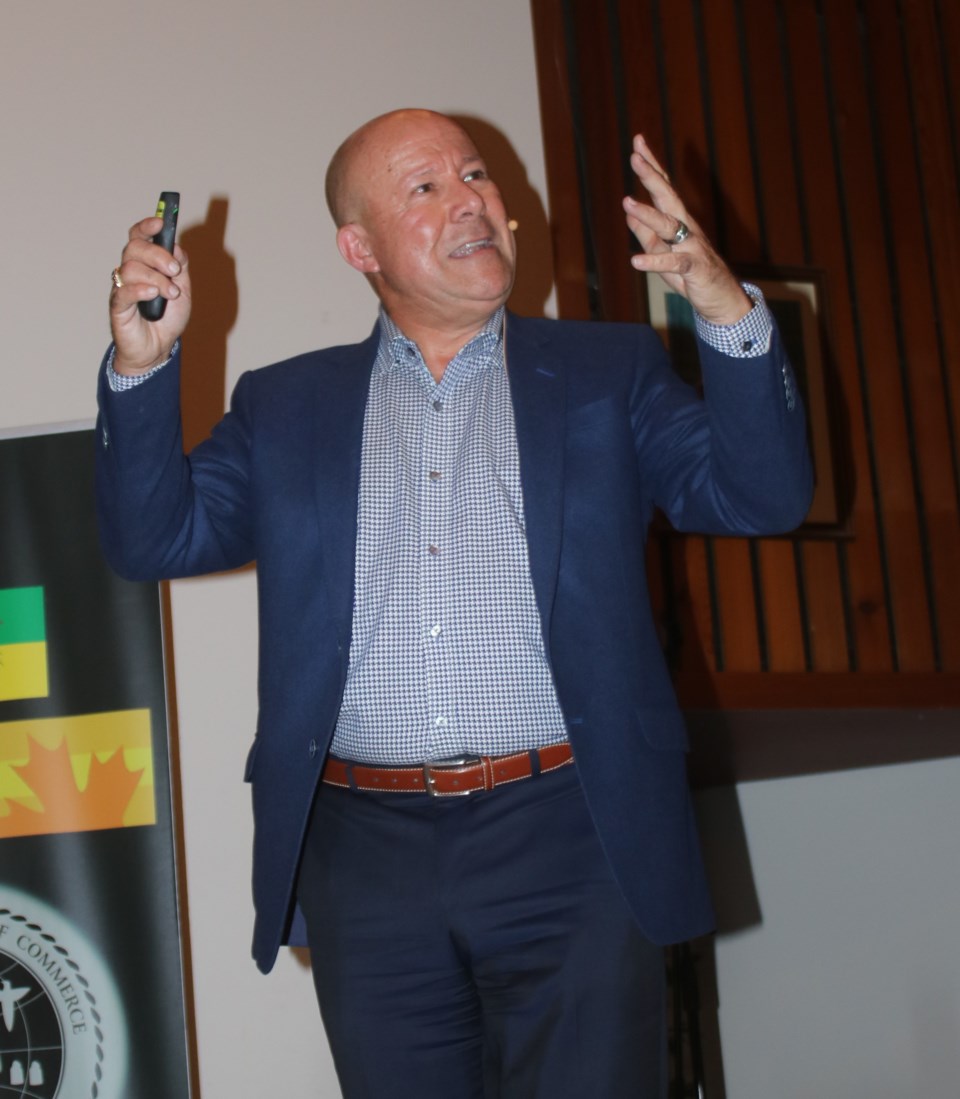Change is inevitable, the question is how do we adapt to that change?
In Saskatchewan we did not always adapt well, suggested Yorkton Chamber of Commerce Business Dinner speaker John Gormley.
In the not so distant past “change resistance ... held us back ... The negative attitude ... for a long time defined Saskatchewan,” suggested the well-known talk show host and former MP.
Gormley said he does appreciate for decades the province was influenced by those who lived through the hardships of the depression that left many fearing “it was only a matter of time before things get back to the 1930s ... It was in the DNA.”
That fear was often unfounded.
Gormley said in most cases whatever we feared might occur with change was never as bad in reality.
But, it was time to stop looking in the rear view mirror at the ‘30s.
“I think we can leave 90-years ago behind,” said Gormley.
But, how Saskatchewan reacts to change is itself changing, reasoned Gormley.
The reason is the emergence of millennials, a group in society who have grown up through a time of rapid change so are used to it, and immigrants, who have taken the big step of accepting change in moving to a new country.
“The act of immigrating is the ultimate opportunity seeking in a positive way,” Gormley told Yorkton This Week.
The very act of moving to a new country suggests a confidence in what change can bring, he added.
“It’s their plan for things to be better,” said Gormley, who noted immigration rates to the province are at levels today not seen in the previous 100 years.
The influence of millennials and immigrants is being felt most keenly in Saskatchewan in recent years because the population has seen growth, said Gormley. Young people are staying in the province, and immigrants are choosing Saskatchewan. The dual change is having a positive impact on how change is perceived here.
In this era change is rapid, said Gormley, adding “the accelerated rate of change creates volatility,” making it more important than ever to be adaptive as a province.
Gormley said how we as a province deal with change will impact what this province looks like in the future.
“What are the takeaways as we adjust to change?” he asked during a pre-presentation interview with Yorkton This Week.
The key one might be that the new acceptance of change puts Saskatchewan in a better position in what Gormley noted “is a very small world” which increasingly shows “there is very little unique about Saskatchewan anymore.”
It has helped in being more comfortable with change in Saskatchewan as the province itself has changed, moving from one largely reliant of only agriculture, to one that is today a three-legged economy diversified with mining and oil and gas, said Gormley, a situation which leaves the economy buffered as generally at least one of the three sectors is strong.
“You can usually bank on one of the legs to get you through,” he said.
Saskatchewan is actual a rather small place in terms of the world, with only 1/15 of one per cent of the world’s population.
But, the province is still influential in terms of trade, said Gormley.
It starts in agriculture where Saskatchewan has 48 per cent of the arable land in Canada. From that land base the province has two-thirds of world trade in lentils, 54 per cent on peas, 34 per cent in durum and 32 per cent of flax.
Saskatchewan is also the number one exporter of potash, and number two in uranium, offered Gormley.
With a greater capacity to accept and deal with change come opportunities to build on what Saskatchewan is already doing.
��




